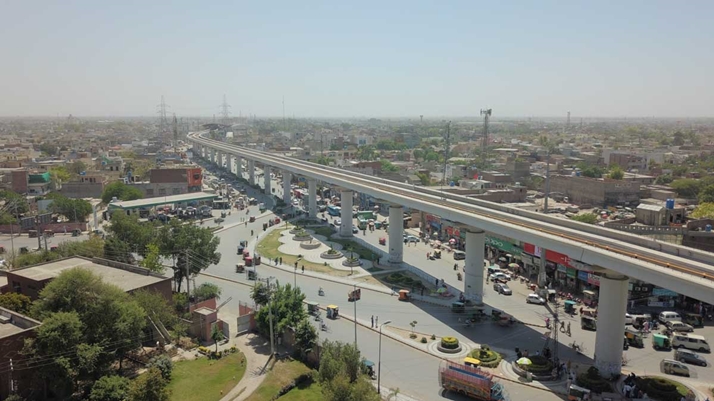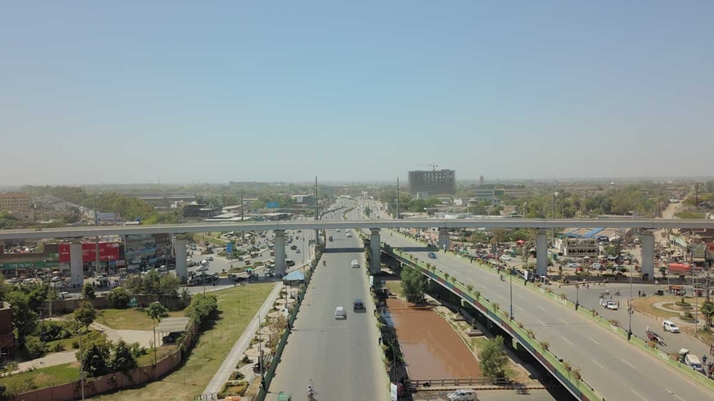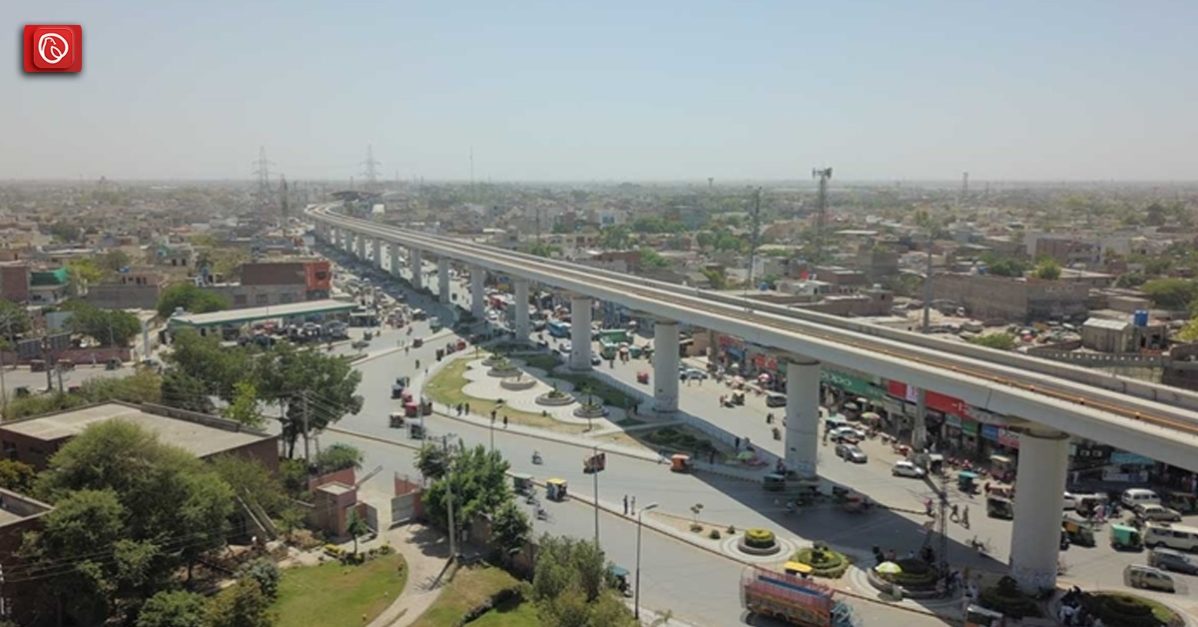Lahore is a bustling metropolis known for its historical landmarks, vibrant culture, and delectable cuisine. However, like many other major cities, Lahore has grappled with a pressing issue – traffic congestion. To tackle this challenge head-on, the government of Punjab took the initiative to construct the Thokar Niaz Baig Flyover. This modern infrastructure project has played a crucial role in easing traffic woes and improving the overall transportation system in Lahore. In this blog post, Graana.com will delve into the significance of the Thokar Niaz Baig Flyover, its construction process, and the benefits it has brought to the people of Lahore.
History
The Thokar Niaz Baig Flyover was constructed by the National Highway Authority of Pakistan (NHA). The project was completed in 2007 for Rs 1.2 billion. The flyover was inaugurated by the then Prime Minister of Pakistan, Shaukat Aziz.
Location

This Flyover is a significant transportation infrastructure in Lahore, Pakistan. It is located in the southeastern part of the city and connects Canal Bank Road to Multan Road. The flyover is about 1700 feet long and plays a vital role in easing traffic congestion in the city.
The flyover starts in the Canal A Area neighbourhood, near a Honda dealership. It runs northeast of the dealership. There is a Metro Bus stop on the western side of the flyover. There are also a few service stations near the stop. Further along the flyover, you can find the Daewoo Head Terminal Thokar Niaz Baig Flyover. In the middle of the flyover, it crosses the Lahore Canal and a small park, Thokar Niaz Baig Canal Park. The flyover ends near a small mosque, Jamia Masjid Riaz Ul Janah.
Features
The Thokar Niaz Baig Flyover is a six-lane flyover with a height of 10 metres. The flyover has two carriageways, each with three lanes. The flyover also has a pedestrian walkway and a service road.
As Lahore continues to grow in population and economic activities, the surge in vehicles on the roads has led to severe traffic congestion. During peak hours, the roads around the Thokar Niaz Baig intersection witnessed long queues of vehicles, resulting in frustratingly slow-moving traffic. Commuters faced arduous journeys, and businesses suffered from delayed shipments and deliveries due to the bottleneck at this crucial junction.
Connection With Nearby Areas

Thokar Niaz Baig is one of Lahore’s busiest intersections and gateways. Many vehicles pass through here every day, either entering the city or leaving to head towards Multan Road or the Motorway Thokar Niaz Baig. Major landmarks near Thokar Niaz Baig include the Water Resources Development Authority, Metro Cash and Carry Lalazar Park, and Jinnah Bus Terminal. There are also several drive-thru restaurants and corporate offices in the area.
In addition, there are several special economic zones located in the vicinity of Thokar Niaz Baig, including Water Resources Area, Model Town, Canal Town, Ali Town, Westwood Colony, Saif Town, Canal Colony, Izmir Town, Muhafiz Town, Johar Town, and DHA EME. It is a central transportation hub for the city, providing easy access for travellers to and from Lahore.
Modern Engineering Marvel
The Thokar Niaz Baig Flyover was designed to meet international standards, incorporating modern engineering techniques and quality materials to ensure its longevity and durability. The flyover had multiple lanes, allowing it to accommodate many vehicles. Additionally, pedestrian walkways and safety measures were integrated to ensure the safety and convenience of pedestrians.
Impact
Since its completion, this has remarkably impacted traffic congestion in Lahore. The flyover provides an elevated route that allows vehicles to bypass the crowded intersection, significantly reducing the waiting times and easing the traffic flow. As a result, commuters experience smoother and quicker journeys through this previously notorious bottleneck.
Enhancing Safety on the Roads
One of the key advantages of the flyover is the enhanced safety it brings to the roads. By separating the traffic streams at Thokar Niaz Baig, the flyover has reduced the likelihood of collisions and accidents. Pedestrian walkways have provided a safer means for people to cross the roads, promoting pedestrian safety.
Time and Fuel Savings
The improved traffic flow facilitated by the flyover translates into substantial time and fuel savings for commuters. Reduced idling time and shorter travel distances lead to lower fuel consumption and less air pollution, benefiting both the environment and the people.
Challenges
Here are some of the challenges of the Thokar Niaz Baig Flyover:
Vandalism and graffiti
This Flyover has been subjected to vandalism and graffiti. It has damaged the flyover and made it look unsightly. The NHA has taken steps to address this challenge, but it remains a problem.
Maintenance
The Thokar Niaz Baig Flyover requires regular maintenance. It is because the flyover is exposed to the elements and is subject to wear and tear. The NHA has a budget for maintenance, but more is needed to keep the flyover in good condition.
Conclusion
The Thokar Niaz Baig Flyover is an impressive addition to Lahore’s infrastructure that has made a tangible difference in the lives of its residents. This modern engineering marvel has improved Lahore’s overall quality of life by alleviating traffic congestion and enhancing road safety. As cities worldwide grapple with traffic challenges, the success of this Flyover stands as a shining example of how well-planned infrastructure projects can revolutionise urban transportation and pave the way for more prosperous and livable cities.
Frequently Asked Questions
Q: What is Thokar Niaz Baig Flyover?
A: This Flyover is a significant transportation infrastructure in Lahore, Pakistan. It is located in the southeastern part of the city and connects Canal Bank Road to Multan Road. The flyover is about 1700 feet long and plays a vital role in easing traffic congestion in the city.
Q: When was this Flyover built?
The Thokar Niaz Baig Flyover was constructed in 2007, with the total project cost being Rs 1.2 billion.
Q: What are the benefits of this Flyover?
A: The Thokar Niaz Baig Flyover has significantly reduced traffic congestion in the city. The flyover has also improved the flow of traffic on the M2 Motorway. The flyover has also made it easier for people to travel between the Thokar Niaz Baig area and other parts of the city.
Q: What are the challenges of this Flyover?
Thokar Niaz Baig Flyover has experienced vandalism, graffiti, and accidents. NHA is taking action, but a solution is still needed.
Q: What is the future of Thokar Niaz Baig Flyover?
A: The Thokar Niaz Baig Flyover is a vital part of the transportation infrastructure in Lahore. Moreover, the NHA plans to construct additional flyovers in Lahore, and the Thokar Niaz Baig Flyover will likely be a model for these future projects.
Follow Graana Blog for more related information.




